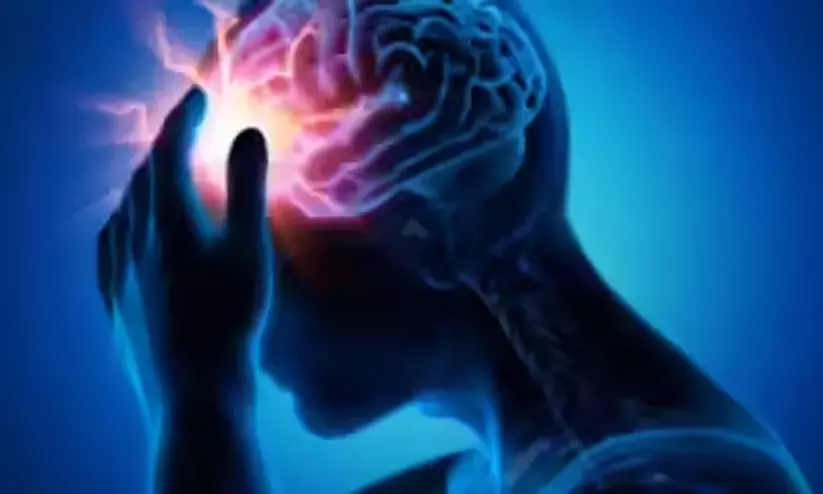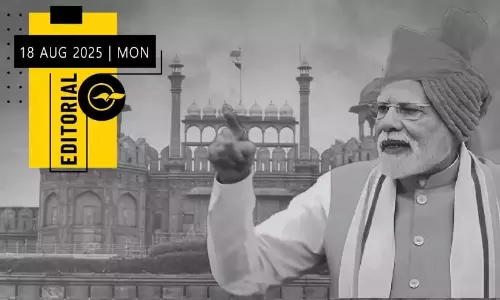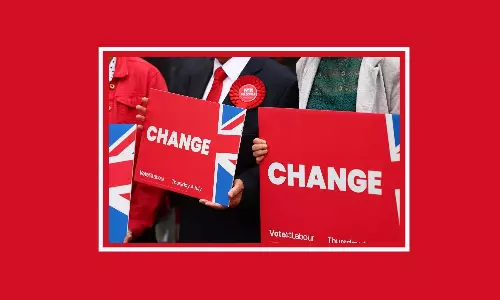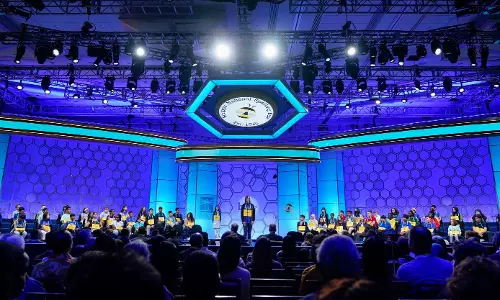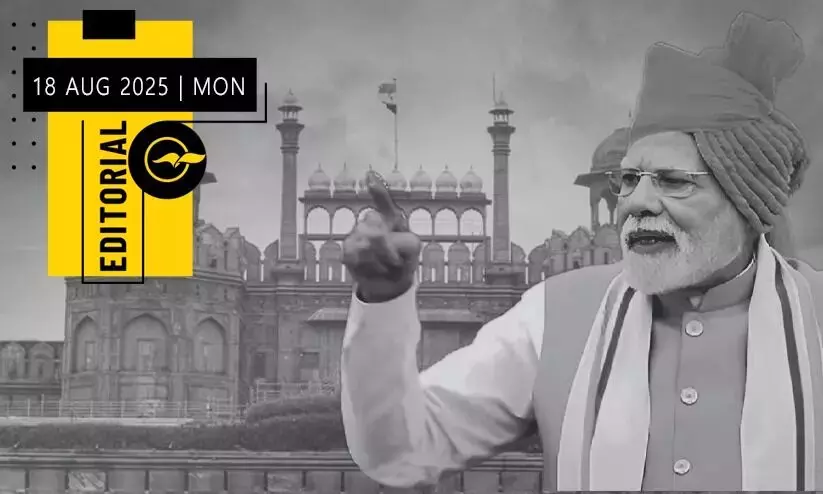
‘Demography mission’ a dubious move
text_fieldsThe speech delivered by India’s Prime Minister on Independence Day was one that concealed deeply undemocratic policies behind grand and flowery words. It offered the media several fancy promises to rejoice, some of which are indeed welcome. Among them was the announcement of plans to restructure the Goods and Services Tax (GST) framework in a way that could significantly reduce the prices of essential commodities. He also projected substantial progress in areas such as youth empowerment, security systems, defence, and technology. At the same time the speech revealed him as a leader who failed to recognise the country’s real problems. Neither the hardships of the poor, nor the rising unemployment, nor the widening economic inequality, nor the collapse in agriculture and social sectors, nor India’s growing isolation on the global stage seemed to trouble him. More regrettably, even in his ninth Independence Day address, he failed to present India as one united nation or to see Indians beyond political and religious divides. His speech not only ignored the freedom fighters and martyrs of the independence struggle but also praised those who had once dismissed that struggle. The country heard the irony of a Prime Minister who claimed "We want to celebrate pluralism, to make it a way of life,’ while at the same time glorifying the ideology of hatred.
The most dangerous part of Narendra Modi’s speech, critics say, was the hidden agenda called the “Demography mission". Branded with the benign name of the High-Power Demography Mission, this plan is seen as part of the RSS’s larger agenda. Observers point out that it bears a close resemblance to policies once pursued by Hitler’s regime in Germany and by the Zionist government in Palestine. Modi’s praise for RSS leaders in his speech is also viewed critically, since those leaders were historically known to admire figures like Hitler and Mussolini. Analysts argue that strategies aimed at dividing people along religious and caste lines — and denying citizenship and voting rights to “other” groups — are already being implemented in India through recent measures such as the Citizenship Amendment Act (CAA), the National Register of Citizens (NRC), and voter verification drives in Bihar. They add that “illegal immigration” has often been used as an unproven claim by several fascist regimes. Modi, as critics argue is also making use of hate-driven campaigns such as those around “love jihad". By claiming that so-called “infiltrators” are targeting Indian women, the real intention is to intensify an atmosphere of hostility and mutual suspicion. The political purpose behind such propaganda, according to analysts, is becoming increasingly clear through alleged electoral manipulations. When free and fair elections do not guarantee a majority, the alternative becomes eliminating as many opposition votes as possible while artificially boosting favourable ones. Observers draw parallels with Nazi Germany: while Hitler’s slogan centred on the purity of the Aryan race, in India the focus, they argue, has shifted to a different form of extreme communalism and caste-based nationalism. Nazi Germany has also invoked the idea of national unity while simultaneously branding minorities as outsiders.
The old fascist slogan of “one race, one culture” has long influenced India’s communal right wing. Analysts point out that the CAA and the NRC have often been described as Indian versions of Germany’s Nuremberg Laws. Critics argue that Modi, through his praise of the RSS, has made clear which ideology underpins the attempt to deny certain citizens their voting rights. The RSS’s early leaders recognised only Hindu nationalism, rejecting India’s pluralism altogether. History records that the very tricolour Modi hoisted on Independence Day was once scorned by the organisation he lauded. Even the Indian Constitution, which Modi ceremonially praised, was opposed by the RSS in its early years — and many observers say the group still displays signs of wanting to rewrite it. It is not only the Constitution but Indian democracy itself that appears under threat from manipulative strategies. Claims that demographic changes in border regions pose a security risk to India, do not stem from genuine concerns about the nation’s integrity or safety. Rather, they are rooted in narrow electoral politics. If the problem were truly national in nature, it would be India’s real freedom fighters who would be remembered, not the RSS figures.





